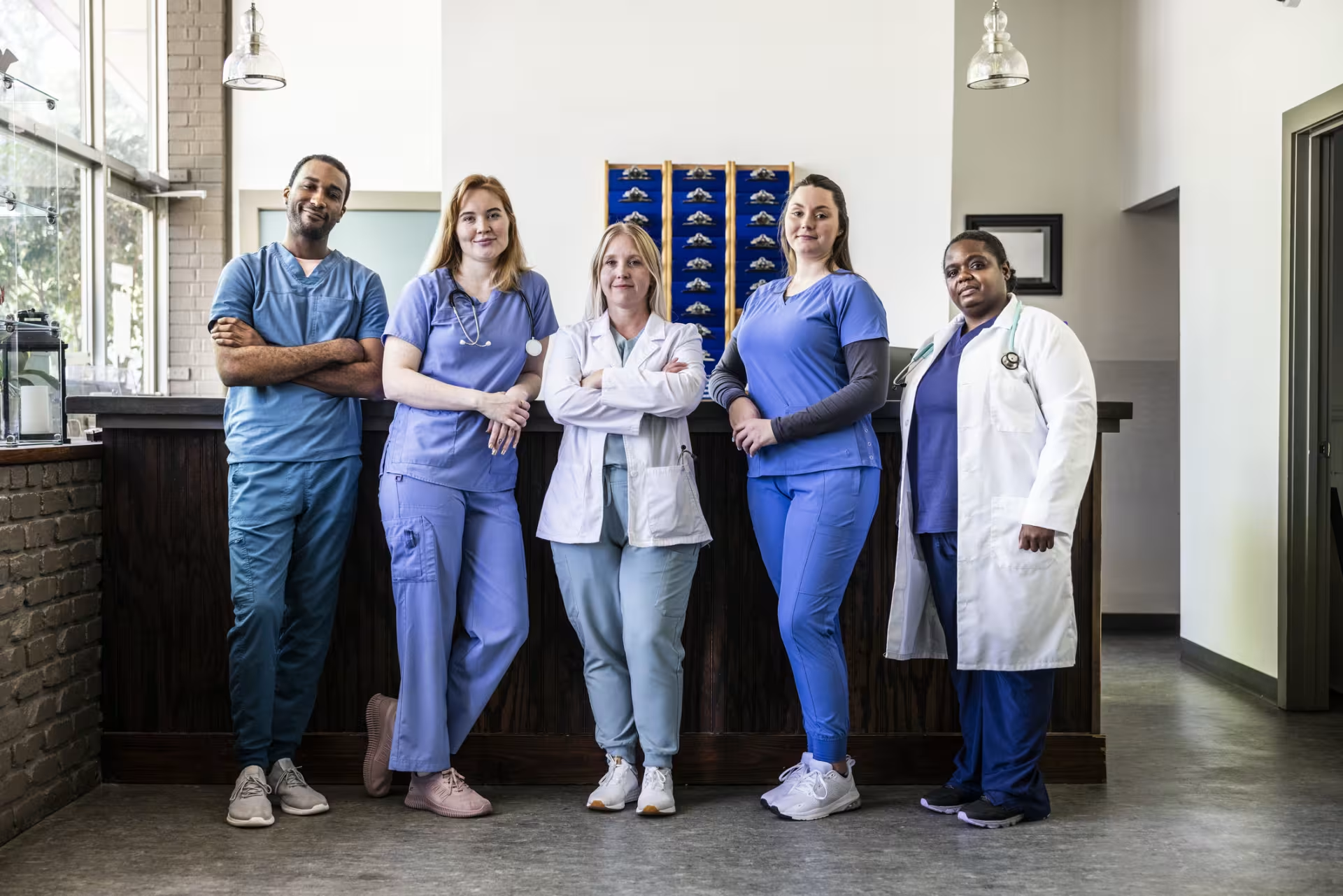In This Blog:
Why Should You Make a Career Switch to Nursing?
Choosing nursing as a second career presents an exciting opportunity for students who are passionate about healthcare. Sometimes you get yourself side-tracked in life, working in a career you’re not passionate about — so you seek an opportunity to fulfill your calling; possibly to better your life or the lives of others. There are many reasons why someone might consider changing careers to nursing, and if you truly dedicate yourself to your education and furthering your career, it’s never too late to make the switch.
Benefits of Becoming a Nurse Later in Life
If you’ve decided to make the career switch to nursing, you likely have your reasons why. Students who are re-careering are often intrinsically motivated and inspired to make the career switch. As a second-degree student, your motivations might be a little different than they were in the past. For example, you might have your own family now, or you might be taking a break from a career.
Being intrinsically motivated can help power you through your program to reach your end goal of earning your Bachelor of Science in Nursing (BSN). Having years of experience behind you, you have many advantages working in your favor that can help you be successful in a nursing program.
Overcoming Challenges of Starting Nursing as a Second Career
When re-careering and changing careers to nursing, there are some challenges that you may encounter. Planning to be successful in nursing as a second career involves acknowledging these challenges and coming up with ways to overcome them.
Time Commitment
No matter what you study, going back to school requires a significant time commitment. You may not have the flexibility that you had before. For example, students may initially think they can work full time while pursuing their nursing degree, only to quickly realize that it is not feasible. Consider what pursuing a second degree will look like for you; this includes the time commitment for studying, clinicals, skills labs, simulations, possible relocation requirements and other factors that require your attention and effort.
It can be helpful to remind yourself that although you may wish to minimize your time away from family and other responsibilities, if you dedicate yourself in the short term to your studies, you may return to family, personal responsibilities and reinvigorated career prospects in the long term once you have earned your BSN.
Reprioritizing
To be successful in nursing as a second career, you may have to learn to re-prioritize certain things. This may involve juggling family life and other priorities. You may have to make sacrifices that you have not made before. Because you’re taking the step to make the career switch to nursing, you may need to step back or take a pause from other priorities in your life so you can focus on the schooling aspect and the hours it requires.
Unfamiliarity With Online Courses
With second-degree nursing options such as an accelerated Bachelor of Science in Nursing (ABSN) program, you will most likely have to complete some courses online. If you’re returning to school after several years, or have never had experience with online courses, this may seem intimidating. However, know that you are not alone. There are resources and online support to help you, along with your other classmates who are experiencing this right there with you.
How Can I Begin Nursing as a Second Career?
If you have a previous college degree, consider the path of an ABSN program. This program is set up for students who are considering becoming a nurse later in life and are looking to undergo a career switch to nursing. These programs also are typically offered in a hybrid format, which consists of online classes in combination with in-person skills labs, simulations and clinical rotations.
ABSN Program Benefits
Along with utilizing your previous work, life and educational experiences to help you become a nurse on an accelerated timeframe, there are other benefits to choosing nursing as a second career through an ABSN program.
Online Coursework
Grand Canyon University’s (GCU) ABSN curriculum is structured one week at a time, where you may be taking four to six courses at the same time. There is overlap between courses, so information that you’re learning in one course will apply to other courses as well.
The ABSN online courses include live and recorded weekly guided faculty discussions. You’ll interact with knowledgeable faculty in the nursing field and have access to learning resources and live tutors.
A notable benefit of the ABSN program is that there is Elsevier Adaptive Quizzing (EAQ) — NCLEX-style questions embedded within the program. These, along with other learning components, can help prepare you to pass the National Council Licensure Examination (NCLEX-RN) exam and earn your registered nursing (RN) license.
Faculty Support
There are strong faculty who are available to support and virtually meet with students. Faculty hold “explore more” sessions where additional content is reviewed. With your online courses, you’ll be able to connect with nursing faculty who will provide expertise and feedback throughout the program, so you’re never on your own.
Skills Labs, Immersive Simulations and Clinical Rotations
The in-person portion of your ABSN program consists of hands-on skills labs, immersive simulation experiences and clinical rotations. Your immersive simulation counts as a portion of your clinical hours. These simulations are meant to be a safe place to learn, which means you can come and practice your clinical judgment and critical thinking to help prepare you for those real-life rotations.
During your clinical rotations, you will benefit from the presence of assigned faculty with expertise in that specialty area. They are there with you to help make you comfortable, support you and educate you in those specialty clinical areas.
Keys to Success When Changing Careers to Nursing
For each challenge you may face when becoming a nurse later in life, there are ways to overcome them and be successful in your ABSN program. When choosing nursing as a second career path, some key ways to be successful in your program include:
It’s Never Too Late; Earn Your ABSN Degree From GCU
If you’re considering becoming a nurse later in life, learn more about enrolling in the accelerated Bachelor of Science in Nursing program at GCU. Our 16-month ABSN program is currently offered at various locations including Arizona, Utah and Nevada.(See disclaimer 1) Fill out the form on this page to get in contact with a dedicated university counselor and begin your nursing journey.
(See disclaimer 1) Secondary Applicants must transfer a minimum of 60 of the required 123 credits or have completed a baccalaureate degree which includes nine prerequisite courses/labs and 10 general education courses prior to starting the core nursing courses, which can be completed in as few as 16 months. Direct Entry Applicants that do not transfer 60 credits but meet the minimum requirements can complete these credits through GCU prior to starting the core nursing courses. Depending on the state where student has enrolled or intends to complete the program, student may require additional courses. This may include, but is not limited to, additional general education courses, courses in the major, clinical courses, or a different course sequence. See University Policy Handbook.
Approved by the dean of the College of Nursing and Health Care Professions on May 15, 2023.
Associate Dean,






